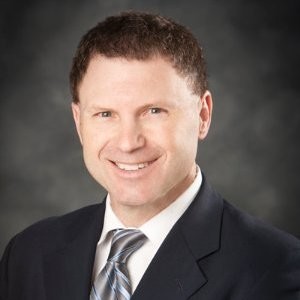The Flip Transaction: Bringing Your Foreign Startup into the US Investment Market

By Roger Royse, Partner, Haynes Boone, LLP in Palo Alto, CA.
The flip transaction, bringing your foreign startup into the US investment market. Non-US startups often arrive at the point where they wish to seek funding from a US venture capital firm or establish a presence in the US. Sophisticated investors tend to prefer to invest in US portfolio companies jurisdiction, typically in Delaware.
There are several reasons that foreign entrepreneurs should move their startup from their home countries to the US. The decision to relocate may cause an increased company’s valuation or effect attractiveness for additional financing. US investors are likely to find companies that have reincorporated in the US as a more attractive investment opportunity. Companies seeking to build relationships with local investors find this becomes an easier task by relocating the business to the US. Many foreign companies already see a sizable portion of their revenue coming out of the US and a relocation to the US is a logical progression.
There are several ways to move a foreign startup to the US. For example, the foreign entity could be merged or converted into a new Delaware corporation. The owners of the foreign startup would become the shareholders of the surviving Delaware corporation. However, the most common solution for moving foreign entity into the US has been the “flip” transaction, in which the foreign entity’s shareholders create a new US entity and exchange their foreign stock for the US stock. Through this transaction the original shareholders are now the owners of the US entity, and the US entity becomes the parent of the foreign entity. The company has been reincorporated in the US satisfying the investor’s conditions to funding and angel investors and venture capital funds would then invest in the newly formed US entity.
Consider the most common scenario:
Forco, a foreign startup, has filled a market need and has accelerating year-over-year growth. Without proper funding, Forco remains highly vulnerable to emerging, funded competitors. Forco has identified Investor, a US-based angel investor or venture capital firm interested in investing. However, Investor has expressed discomfort with Forco’s foreign entity structure and foreign governing law. As a condition to funding, Investor requires Forco to reincorporate in the US and the flip approach is selected. In the flip, Forco’s shareholders create a new US entity (“Domco”), and exchange their Forco stock for Domco stock. After the exchange, the shareholders will own Domco, and Domco will own Forco. Investor invests into Domco.
Foreign startups should generally not flip before securing US investors. First , the flip eventually subjects the worldwide operation to US tax because the new US parent is taxed on its worldwide income. Second, a US parent may discourage foreign VCs from investing in the business. In addition, foreign entrepreneurs and prospective US investors should consider other issues such as the tax consequences of the flip to the shareholders of the foreign entity in their home jurisdictions, ownership and sharing of intellectual property rights between the US parent and the foreign subsidiary, intercompany agreements, issuance of equity incentives to non-US employees, review of shareholder agreements to conform to US law, securities law compliance and the need for third-party consents or approvals under existing commercial contracts of the foreign entity.
A willingness to flip opens the world’s top venture capital market to foreign startups. As the world gets smaller. Foreign companies should consider a tax efficient move to the US for investment, new markets and talent.
We hope you found this article about the flip transaction helpful. If you have questions or need expert tax or family office advice that’s refreshingly objective (we never sell investments), please contact us or visit our Family office page or our website at www.GROCO.com. Unfortunately, we no longer give advice to other tax professionals gratis.
To receive our free newsletter, contact us here.
Subscribe to our YouTube Channel for more updates.
Considerately yours,
GROCO, GROCO Tax, GROCO Technology, GROCO Advisory Services, GROCO Consulting Services, GROCO Relationship Services, GROCO Consulting/Advisory Services, GROCO Family Office Wealth, and GROCO Family Office Services.
Time to Add These Watches to Your Collection?
Time to Add These Watches to Your Collection? Rolex, Audemars Piguet, Tag Heuer, Vacheron Constantin, and Cartier, these are just a few of the most well known high-end luxury watch brands in the world. Owning a few expensive luxury watches is common amongst most high net worth individuals, but for some collecting multiple rare and/or…
How to Plan for a Trump Presidency
How to Plan for a Trump Presidency Did you hear the news? America has elected Donald Trump as the nation’s 45th president. So, unless you’ve been in a coma or hiding out in a cave in the middle of nowhere, then you already know that. It’s also very likely that you’ve already started to wonder…
Have You Considered Art Investment Funds?
Have You Considered Art Investment Funds? What makes a piece of art truly great? Is it the art itself, or is it the artist who created it? Is art great because of its culturally iconic status, or because of what it represents? Art, after all is very subjective and what one person feels is worthy…
Would Buying a Corporate Jet Make Sense for You?
Would Buying a Corporate Jet Make Sense for You? One of the most common aspects of the business world is travel. People come and go every day for all kinds of reasons and to all kinds of locations worldwide. While most air travelers typically do the bulk of their traveling with commercial airlines, there are…





